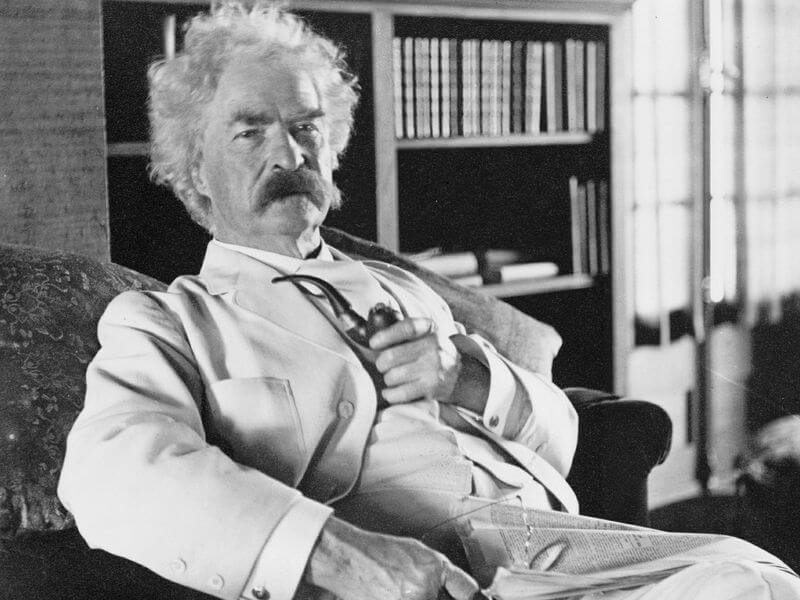[Mark] Twain was raised with alternative medicine. His mother, Jane Clemens, dabbled in everything from homeopathy to spiritualism to patent medicines. As a boy, Twain saw a faith healer cure his mother’s toothache with suggestion. His mother frequently dosed him with Perry Davis’ “Pain Killer” — a mixture of alcohol, camphor, and cayenne pepper. All treatments apparently worked: he survived.
As an adult, Twain experimented with everything, sampling every system of medical treatment. He thought there was no reliable way to find out why people got sick or the best way to make them well. Back then, there wasn’t; but today we do have a reliable way: science. Twain thought that if enough treatments were sampled, there might be a remote chance of finding one that actually worked.
…
Twain’s experiments fell into a consistent pattern. At first, he believed each new treatment he adopted was highly effective and he spoke out loudly and forcefully in support of it. Later he was reluctant to let it go, clinging to it beyond all reason even as he realized that the improvements had been illusory or only temporary.
He wasn’t gullible or misinformed; he was simply uninformed.































